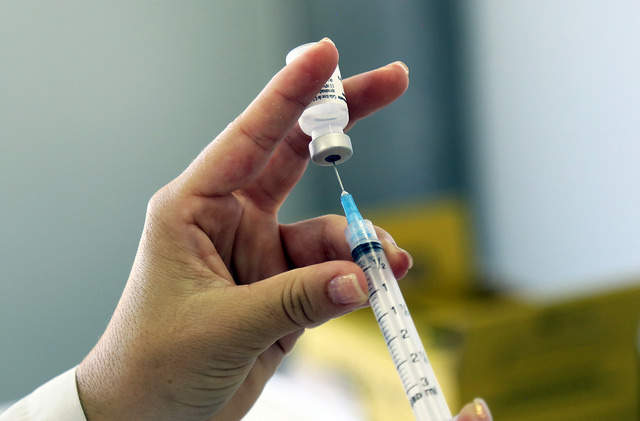
Genocea Biosciences has filed an Investigational New Drug (IND) application with the US Food and Drug Administration (FDA) to initiate a Phase I/IIa clinical trial examining the safety and efficacy of its leading personalised neoantigen cancer vaccine candidate, GEN-009.
The programme is anticipated to begin later this year, first looking to examine the immunogenicity of GEN-009 as a monotherapy in cancer patients with no evidence of disease but a high risk of relapse. A minimum of six patients previously treated for melanoma, non-small cell lung cancer, head cancer, neck cancer, or urothelial carcinoma will be enrolled. Genocea hopes to announce top-line data from the study in the first half of 2019.

Discover B2B Marketing That Performs
Combine business intelligence and editorial excellence to reach engaged professionals across 36 leading media platforms.
If immunogenicity is proven, Genocea will advance its research to study GEN-009 in combination with checkpoint inhibitors in patients with advanced or metastatic solid tumours, and as a monotherapy in patients who have failed checkpoint inhibitory therapy.
“We are excited to have advanced GEN-009 one step closer to the clinic,” Genocea CEO Chip Clark said.
“Our GEN-009 program is designed to use our proprietary ATLAS platform to include only empirically confirmed neoantigens and to exclude what we’ve identified as inhibitory neoantigens in each patient’s vaccine. Our scientific data continue to demonstrate that widely used in silico-based neoantigen prediction methods fail to identify most empirically confirmed neoantigens and, critically, misclassify as good the inhibitory neoantigens that vastly outnumber stimulatory neoantigens.
“We therefore believe that ATLAS distinguishes GEN-009 from other neoantigen vaccine approaches and should enable better immune responses and, ultimately, therapeutic benefit for patients.”

US Tariffs are shifting - will you react or anticipate?
Don’t let policy changes catch you off guard. Stay proactive with real-time data and expert analysis.
By GlobalDataATLAS is the company’s proprietary technology platform, which uses a cellular assay to recreate a patient’s actual immune response to cancer and thus identify clinically relevant antigens of T-cells that are often present in tumour cells but have not been recognised by the immune system.
It is often difficult for the immune system to identify cancers as many cancer-associated antigens are minimally altered versions of the body’s own, healthy antigens. Additionally, cancerous cells can undergo genetic changes which can cause them to lose their cancer-related antigens. As such, the development of treatments for this problem is of continued importance.
Cancer vaccines are biological response modifiers, working to stimulate or restore the immune system’s capacity to fight infections and diseases. There are two forms; cancer preventative vaccines and cancer treatment vaccines, the latter of which is of growing interest in the field of medicine. These are used to delay or halt cancer cell growth, cause tumours to shrink, prevent a recurrence of cancer, or eliminate cancerous cells that resisted previous treatment.
Cancer treatment vaccines inject antigens into the body, stimulating an immune response which in turn activates T cell or antibody production. This targets cancer through causing the action of cytotoxic T cells and directing them to attack specific forms of cancer, or by stimulating the production of antibodies which bind to molecules on the surface of cancer cells.
Despite optimism around this form of treatment, research into cancer vaccines has seen numerous setbacks. Danish biotech Banarian Nordic reported a failed Phase III trial for its prostate cancer vaccine Prostvac in September 2017, leading to its shares halving in value. This followed similar failures from GlaxoSmithKline and Merck KGaA in previous years. A major drawback for cancer vaccines is the length of time they take to become effective in the body, while the cancer continues to grow.





